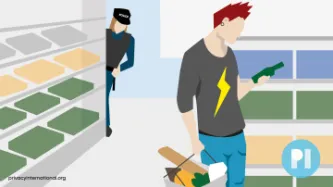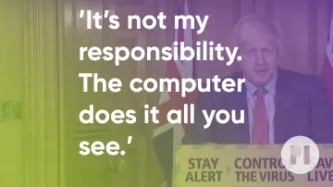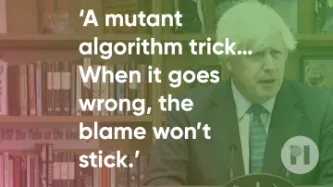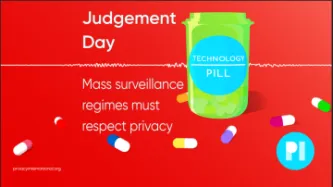Advanced Search
Content Type: Examples
Fifty experts have collaborated to produce best practice advice for wastewater surveillance to detect the genetic signal of SARS-CoV-2, a technique which is rapidly evolving but has been shown in tests to be am effective in acting as an early indicator of disease emergence and helping track disease prevalence in order to support risk management. The advice includes how to design systems for collection and preservation of samples, how to quantify the SARS-CoV-2 signal, and research opportunities…
Content Type: Examples
New York City’s contact tracing system got off to a shaky start; in its first two weeks only 35% of the 5,347 residents who tested or were presumed positive for the coronavirus gave information about close contacts to tracers, rising slightly to 42% in the third week. Encouragingly, however, almost everyone for whom the city had phone numbers answered. The city hopes to have more success as the programme becomes more established and when contact tracers start visiting people’s homes.
https://…
Content Type: Examples
Corruption scandals have added to Latin America’s challenges in dealing with the coronavirus. In Ecuador, prosecutors identified a criminal ring that colluded with health officials to sell body bags to hospitals at 13 times the normal price, and many others are accused of price-gouging for other medical supplies.
The former Bolivian health minister is under house arrest awaiting trial on corruption charges, government officials in seven Brazilian states are under investigation for misusing…
Content Type: Examples
A new requirement to wear wear masks in public in order to curb the spread of the coronavirus poses a problem in France and Belgium, where laws prohibit wearing face coverings, with health as the only allowed exception.
In France, where the law was passed in 2010, between 2011 and 2017 1,830 Muslim women were fined for wearing veils and 145 were warned. The law does not state how to distinguish when face coverings are worn for health reasons rather than religious belief.
This leaves…
Content Type: Examples
Germany’s contact tracing system is thought to have been critical in controlling the COVID-19 outbreak, especially given superspreader events such as infections in meat packing plants. Each of Germany’s 16 federal states is responsible for health, and together with the national Robert Koch Institute they support authorities at city or council level, who are responsible for outbreak investigation and management, including contact tracing.
The country dubbed COVID-19 a notifiable disease early,…
Content Type: Examples
In the second week of operation of the UK’s contact tracing system a quarter of people who tested positive for COVID-19 could not be reached because they had not supplied phone numbers or email addresses. Of the close contacts whose details were provided, contact tracers reached 90.6% to advise them to self-isolate. Data from the first week also showed that only 75% of contactees could be reached within the target 24 hours; contact was made with another 13.6% within 48 hours, and another 8.6%…
Content Type: Examples
The US National Basketball Association’s plan to restart its season includes isolating players and other personnel at Walt Disney World in Orlando, Florida with a plan for frequent testing, quarantine protocols, and bracelets that beep if people come within six feet for too long. In addition, the NBA proposed to give players the option of wearing Oura smart rings after a study showed the physiological data they collect could, in combination with information collected from other wearers via in-…
Content Type: Examples
France has been testing AI tools with security cameras supplied by the French technology company Datakalab in the Paris Metro system and buses in Cannes to detect the percentage of passengers who are wearing face masks. The system does not store or disseminate images and is intended to help authorities anticipate future oubreaks.
https://www.theguardian.com/world/2020/jun/18/coronavirus-mass-surveillance-could-be-here-to-stay-tracking
Writer: Oliver Holmes, Justin McCurry, and Michael Safi…
Content Type: Examples
Lithuania’s data protection authority has suspended the country’s COVID-19 contact tracing app for failing to comply with GDPR’s principle of accountability at the Lithuanian health ministry, which is the relevant data controller. It investigated the app in response to media coverage and public opinion put forward by data protection lawyers and practitioners.
Source: https://globaldatareview.com/coronavirus/lithuanian-contact-tracing-app-suspended
Writer: Alex Pugh
Publication: Global Data…
Content Type: Examples
Turkish authorities are investigating several senior doctors who lead “medical chambers” - professional bodies - in Van, Mardin, and Sanhurfa and have been accused since March 2020 of “issuing threats to create fear and panic among the public” in media interviews and social media posts relating to the COVID-19 outbreak in Turkey. They have also been banned from travelling and required to sign in with their local police stations. The doctors had suggested the authorities were hiding information…
Content Type: News & Analysis
Privacy International (PI) has today warned UK regulatory and law enforcement bodies about the potential deployment of an extensive and potentially nationwide police facial recognition surveillance system. We are urging them to investigate and take steps to ensure that no ‘backdoor’ for unlawful facial recognition surveillance will be developed under the umbrella of a crime reporting system.
According to pricing and data-sharing templates, UK surveillance company Facewatch is offering to…
Content Type: Long Read
As more and more of us feel compelled to cover our faces with masks, companies that work on facial recognition are confronted with a new challenge: how to make their products relevant in an era where masks have gone from being seen as the attribute of those trying to hide to the accessory of good Samaritans trying to protect others.
Facewatch is one of those companies. In May 2020, they announced they had developed a new form of facial recognition technology that allows for the…
Content Type: Video
The two-minute video splices together clips of UK Prime Minister Boris Johnson, cleverly editing his speeches so that he mouths sentences such as:
'Coronavirus won’t affect you if your immunity passport’s blue'
'You can tell our technology’s going well, we’re running this whole thing in Excel'
'A mutant algorithm trick, when it goes wrong, the blame won’t stick'
'Our system’s world-beating at self-defeating'
'So when results are not forthcoming, don’t ask me, ask Dominic…
Content Type: Press release
The new satirical video is a critique of the government's reliance on 'technological solutionism' in the fight against Coronavirus and increasingly across public services more widely, and their willingness to then scapegoat ‘mutant algorithms’ when their hopes for technological panaceas inevitably fail.
The two-minute video splices together clips of Prime Minister Boris Johnson, cleverly editing his speeches so that he mouths sentences such as:
'Coronavirus won’t affect you if your immunity…
Content Type: Examples
noyb filed a complaint against address broker AZ Direct Österreich GmbH after it refused to provide information on the origin and recipients of data processed.
The address broker, in a response to a data subject access request, claimed not to know where the residential address of the data subject – which it had on file – had come from. Similarly, AZ Direct failed to provide a detailed reply regarding the recipients of the data, and simply provided possible categories of recipients.
Content Type: Examples
PI filed a complaint against health website Doctissimo with the French data protection authority (CNIL) after our research found that Doctissimo engaged in programmatic advertising, and shared the results of online depression tests taken on its platform with third parties.
The complaint argues, among others, that Doctissimo had no lawful basis for the processing of personal data as the requirements for valid consent are not met, and that it does not comply with the Data Protection Principles…
Content Type: Examples
The Norwegian Consumer Council (Forbrukerrådet) and noyb filed three formal complaints against Grindr and ad tech companies that were receiving personal data through the app: Twitter’s MoPub, AT&T’s AppNexus, OpenX, AdColony and Smaato.
The complaint followed an investigation carried out by the Norwegian Consumer Council which found that the online advertising industry was “systematically breaking the law”, transmitting personal data and tracking users in ways that are banned under the…
Content Type: Video
Find out more on our website: https://privacyinternational.org/long-read/4206/qa-eus-top-court-rules-uk-french-and-belgian-mass-surveillance-regimes-must-respect
And make sure we can keep taking these fights to court: support.privacyinternational.org
You can listen and subscribe to the podcast where ever you normally find your podcasts:
Spotify
Apple podcasts
Google podcasts
Castbox
Overcast
Pocket Casts
Peertube
Youtube
Stitcher
And more...
Content Type: Long Read
Q&A: EU's top court rules that UK, French and Belgian mass surveillance regimes must respect privacy
Content Type: Press release
By treating everyone as a suspect, the bulk data collection or retention regimes engage European fundamental rights to privacy, data protection, freedom of expression, as guaranteed respectively by Articles 7, 8, and 11 of the EU Charter of Fundamental Rights.
Caroline Wilson Palow, Legal Director of Privacy International, said:
"Today’s judgment reinforces the rule of law in the EU. In these turbulent times, it serves as a reminder that no government should be above the law. Democratic…
Content Type: News & Analysis
On September 16, Google announced their intention to enforce a new "stalkerware" policy after a 15 day grace period ending on 1 October 2020.The policy change states that the Google Play Store will only host stalkerware apps that give "a persistent notification is displayed while the data is being transmitted."
In its announcement, Google defines stalkerware as "Code that transmits personal information off the device without adequate notice or consent and doesn't display a persistent…
Content Type: News & Analysis
Abortion without privacy guarantees is not safe abortion.
Safe access to abortion is far from guaranteed throughout the world. And in many countries, there are groups working hard to make sure that safe access to this vital component of reproductive healthcare remains out of reach.
Online platforms are the new arena of anti-reproductive advocacy, and those opposed to reproductive rights are increasingly deploying digital, data-exploitative strategies. By using and developing digital…
Content Type: News & Analysis
Back in June, we published our investigation into Facebook brands, highlighting how Facebook failed to provide its users with a fair and meaningful understanding of how targeted advertising operated on its platform, and a number of issues preventing users from exercising their rights to the fullest possible extent. In face of the serious gaps encountered, we published an open letter to Facebook drawing attention to four main issues as well as our recommended actions to tackle them. This letter…
Content Type: Press release
A joint press release from Privacy International, Reprieve, CAJ, and the Pat Finucane Centre.
Agents of MI5 and other Government bodies could be legally authorised to commit crimes under new legislation introduced today. There appear to be no express limits in the legislation on the types of crime which could be authorised.
The Covert Human Intelligence Sources (Criminal Conduct) Bill appears not to explicitly prohibit the authorisation of murder, torture, or sexual violence. Reprieve,…
Content Type: Examples
In early August, when the UK government announced it was purchasing 90-minute saliva-based COVID-19 tests called LamPORE and 5,000 lab-free machines to process them, supplied by DNANudge, clinical researchers were dismayed to find that there is no publicly available data about the accuracy or performance of these tests. While the tests could be a game-changer by offering rapid, on-the-spot testing with less discomfort for patients, no scientific research was offered to validate the tests, not…
Content Type: Examples
Questions have been raised about an irregular process by which the Trump administration awarded a $10.2 million dollar six-month contract to Pittsburgh-based TeleTracking Technologies. TeleTracking has traditionally sold software to help hospitals track patient status; under the new contract it is collecting key data about COVID-19 from US hospitals, bypassing the Centers for Disease Control and Prevention, to which such data is normally reported. The contract was awarded by the Department of…
Content Type: Examples
Professional sports teams are considering adopting facial recognition admissions systems to make stadiums as touchless for fans as possible as part of efforts to provide a safe environment during the pandemic. Both the Los Angeles Football Club and the New York Mets are trying the Clear app, made by Alclear, and Major League Baseball is considering it. At the LAFC, fans will use the app to take and upload a selfie to their accounts and link it to their Ticketmaster profiles; on entry to the…
Content Type: Examples
A growing number of companies - for example, San Mateo start-up Camio and AI startup Actuate, which uses machine learning to identify objects and events in surveillance footage - are repositioning themselves as providers of AI software that can track workplace compliance with covid safety rules such as social distancing and wearing masks. Amazon developed its own social distancing tracking technology for internal use in its warehouses and other buildings, and is offering it as a free tool to…










